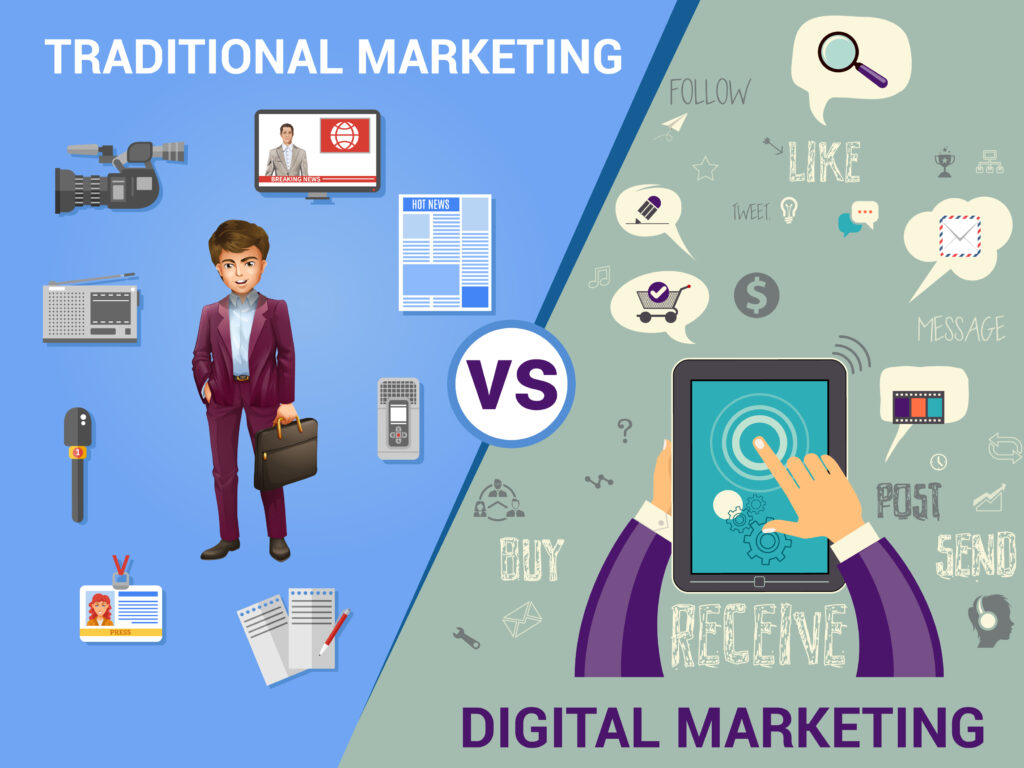
Marketing has always been a cornerstone for business growth. With the rise of digital platforms, the debate between traditional and digital marketing has gained momentum. While traditional methods have stood the test of time, digital marketing offers opportunities that were once unimaginable. Let’s dive deeper to understand the strengths and limitations of each approach.
What is Traditional Marketing?
Traditional marketing encompasses conventional methods such as:
-
- TV and Radio Advertisements
-
- Print Media (newspapers, magazines, brochures)
-
- Outdoor Advertising (billboards, flyers)
Advantages:
-
- Tangible Impact: Physical materials like brochures make a lasting impression.
-
- Local Focus: Perfect for targeting a specific geographic region.
Disadvantages:
-
- High Costs: TV ads and print media are expensive.
-
- Limited Reach: Constrained to specific areas or audiences.
What is Digital Marketing?
Digital marketing utilizes online platforms such as:
-
- Search Engines (SEO, PPC)
-
- Social Media (Facebook, Instagram, LinkedIn)
-
- Email Campaigns
Advantages:
-
- Global Reach: Connect with audiences worldwide.
-
- Cost-Effective: Ads can be tailored to suit budgets of all sizes.
-
- Analytics: Track and measure performance in real-time.
Disadvantages:
-
- High Competition: Standing out requires creativity and consistency.
-
- Technical Expertise: Understanding algorithms and tools can be complex.
Key Differences Between Traditional and Digital Marketing
| Aspect | Traditional Marketing | Digital Marketing |
|---|---|---|
| Cost | High | Affordable |
| Reach | Local | Global |
| Interactivity | Minimal | High |
| Measurability | Difficult | Easy |
Finding the Balance
Both traditional and digital marketing have their unique merits. The key lies in leveraging both effectively. For instance, a small business might use digital marketing for global exposure while using traditional methods to build local trust.
Conclusion
In today’s competitive landscape, understanding the strengths and weaknesses of each marketing method is essential. While digital marketing is revolutionizing the industry, traditional marketing still holds value for specific needs. A smart combination can help businesses achieve their goals more effectively.

Very good information